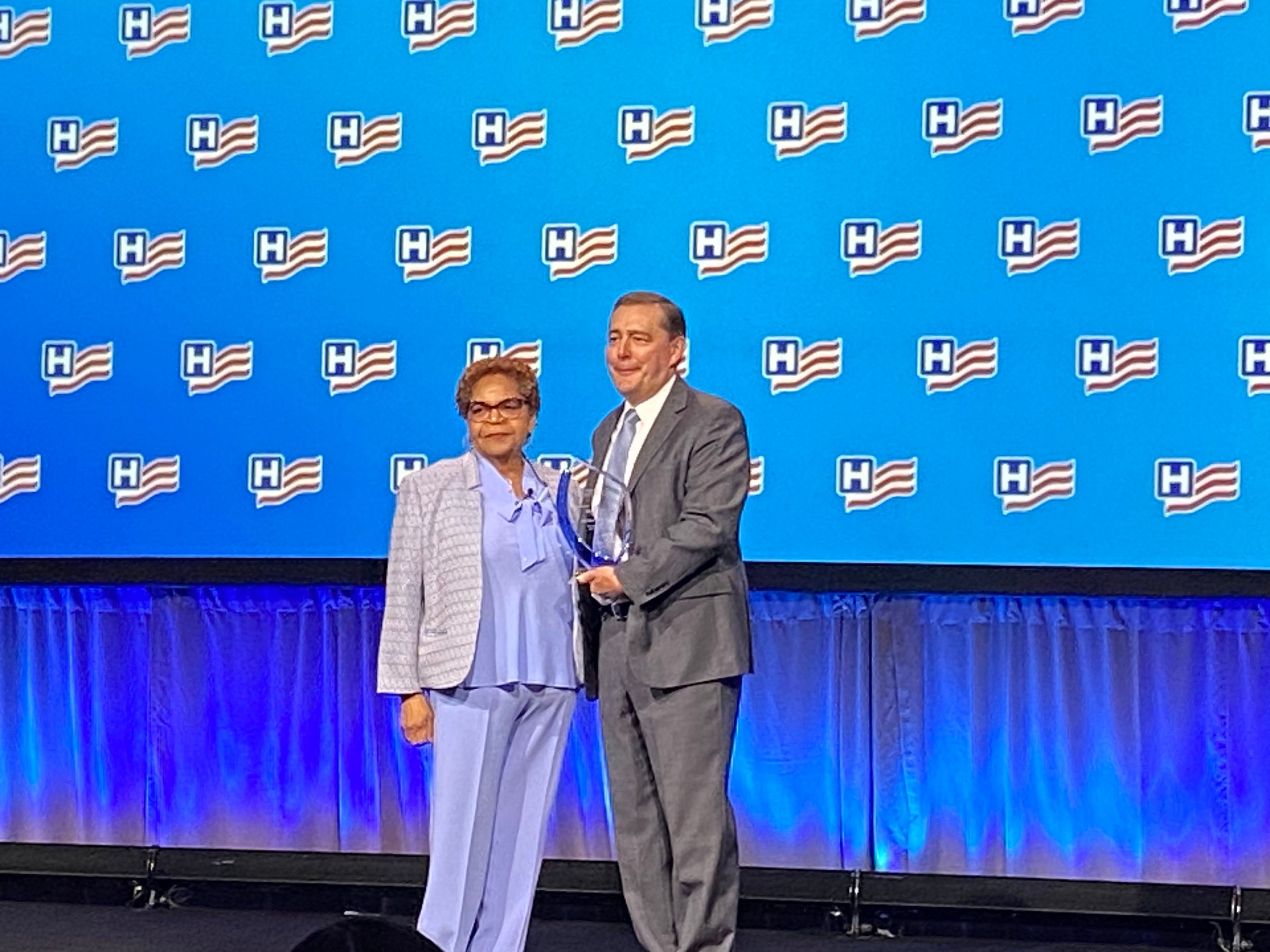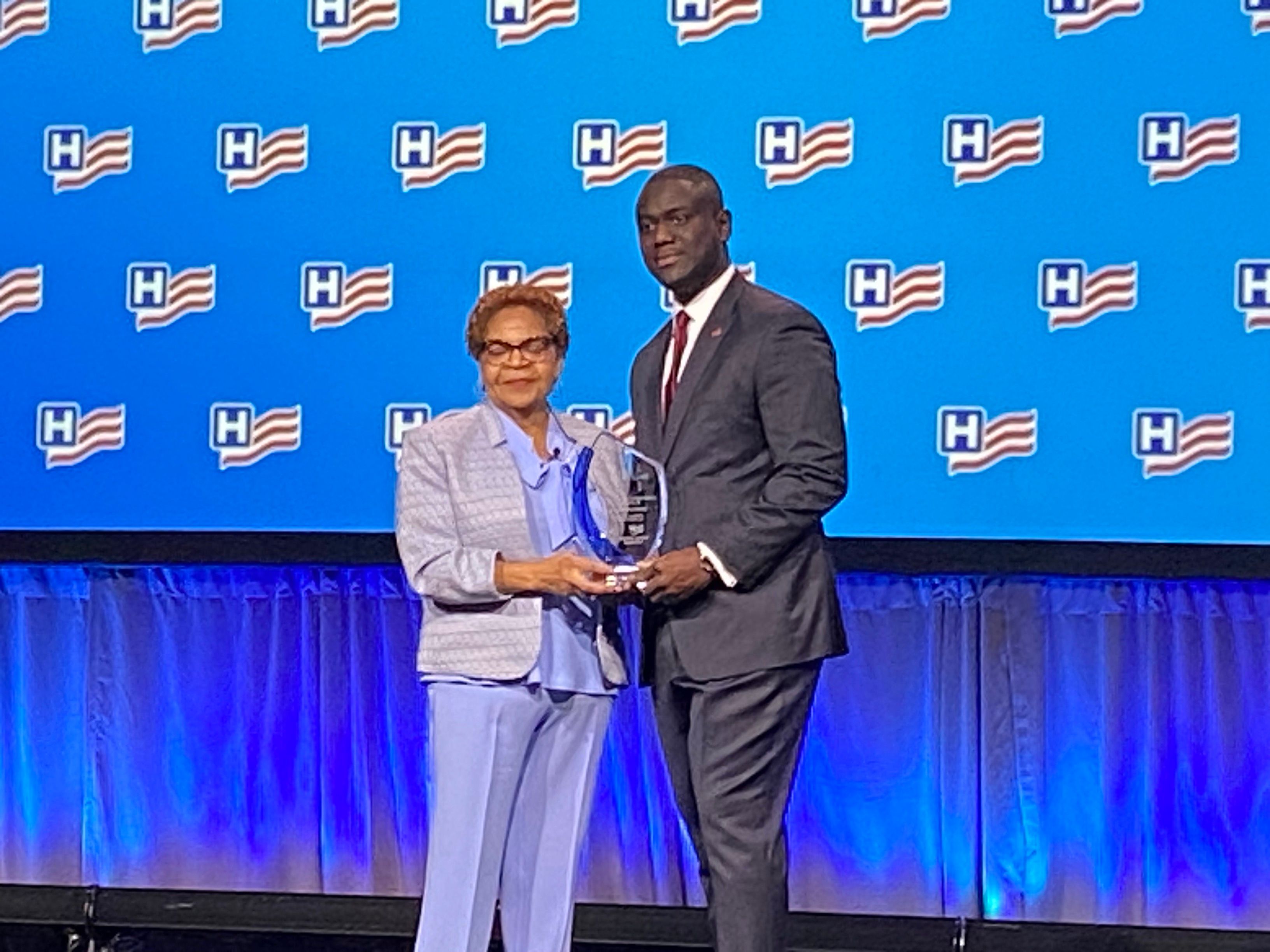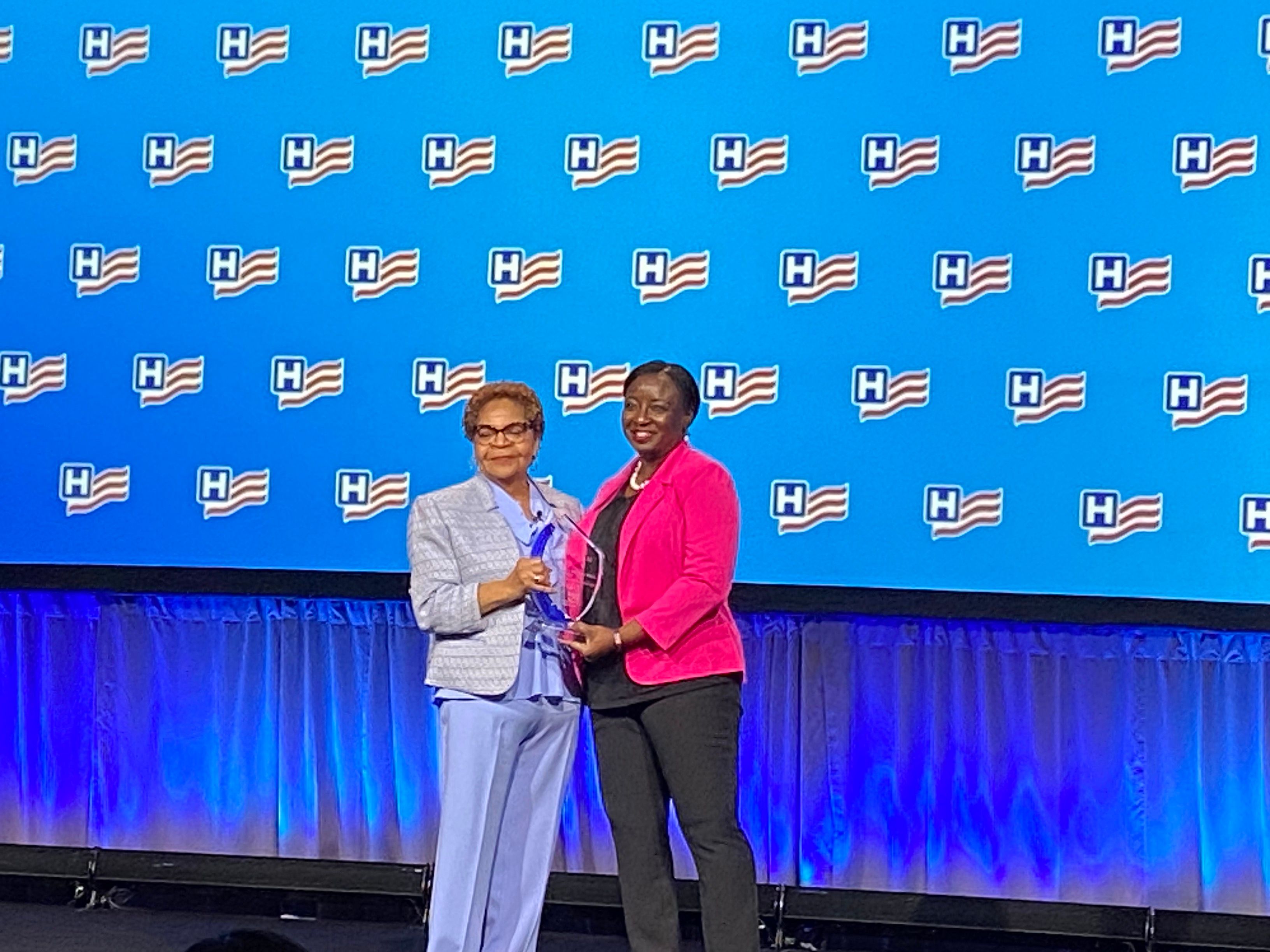Hospitals honored for ‘transformative’ health equity work | AHA Leadership Summit
Meritus Health, Robert Wood Johnson University Hospital and Rapid City Hospital all earned recognition for their efforts to improve care and engage communities.
The American Hospital Association recognized Meritus with the 2023 “Equity of Care Award, Transforming” for its work to improve health equity. (Photo: Ron Southwick)

Seattle - At a time when more hospitals are focusing on improving health equity, a few health systems earned recognition for their efforts to ensure better care for all patients.
The American Hospital Association selected three hospitals to receive the 2023 Carolyn Boone Lewis Equity of Care (EOC) Award. The association honored Meritus Health in Hagerstown, Md., Robert Wood Johnson University Hospital in New Brunswick, N.J., and Rapid City Hospital (Monument Health), in Rapid City, S.D.
The systems received the honors at the AHA’s Leadership Summit Monday. John M. Haupert, president and CEO of Grady Health System in Atlanta and chair of the AHA board, hailed the three recipients.
“They have embedded equity into their DNA to improve patient care and reduce disparities in their communities," Haupert said.
The award recognizes hospitals for making gains in health equity and also sharing the lessons they’ve learned. The award is named in honor of the first African-American and first hospital trustee to serve as chairperson of the AHA’s board of directors.
The association awards three separate honors for systems in health equity. Here’s a rundown on the honors for the three systems.
Meritus Health
The AHA recognized Meritus with the 2023 “Equity of Care Award, Transforming”, an honor given to a system that improved equity in its community. Meritus formed a Leadership in Equity and Diversity (LEAD) council, which produced a health equity report, created a dashboard to track equity, and also developed staff training programs on unconscious bias. The AHA notes that Meritus made gains in reducing pre-term births.
Beyond collecting data to identify disparities, Meritus is sharing the findings of its equity reporting with the community.
In addition, Meritus has worked to improve diversity in the organization, and that includes the leadership ranks of the hospital. Meritus maintains rules to ensure candidates from minority groups aren’t only getting considered for openings for leadership posts but are getting to the final round of interviews.
Robert Wood Johnson University Hospital earned the “Equity of Care Award, Emerging.”

Robert Wood Johnson University Hospital
An RWJBarnabas Health facility, Robert Wood Johnson earned the “Equity of Care Award, Emerging.” The AHA chose Robert Wood Johnson for its work in removing barriers in its care delivery system.
The hospital created a Health Equity Department to craft strategies for the organization, deliver more culturally sensitive care, and improve inclusivity in the workplace. A steering committee was formed to improve data collection on race, ethnicity, sexual orientation, and gender identity.
To improve care for LGBTQ+ patients, Robert Wood Johnson also established a Gender Center, in partnership with Rutgers Robert Wood Johnson Medical School. Robert Wood Johnson is also working with community partners to help patients find primary care doctors, so they don’t have to turn to the emergency department for care. The effort also entails finding providers for postpartum and newborn care.
Rapid City Hospital earned the “Equity of Care, Small/Rural Hospital Excellence Award.”

Rapid City Hospital
The hospital earned the “Equity of Care, Small/Rural Hospital Excellence Award.” The AHA noted that Rapid City formed Health Equity Team to examine data and improve care. Rapid City increased the number of phone calls to patients after they were discharged and managed to reduce readmission rates.
Rapid City also earned recognition for its engagement with the community. For years, the hospital has held cultural awareness seminars focused on health disparities among Native Americans. The system added a Health Equity Seminar in 2022, where doctors discussed data on diseases affecting Native American communities, including cancers, peripheral artery disease, and congenital syphilis.
‘Exemplary commitment’
Rick Pollack, the AHA’s president and CEO, said the three hospitals were richly deserving recipients of the awards.
Pollack praised the hospitals “for engaging in exceptional and transformative efforts to reduce health disparities and other inequities within their communities.”
“This year’s honorees have shown exemplary commitment to understanding and improving the lives of patients and employees of diverse populations through advisory councils, comprehensive data collection, community engagement and outreach and staff training, to give just a few examples of their important work.”
Telehealth faces a looming deadline in Washington | Healthy Bottom Line podcast
February 12th 2025Once again, the clock is ticking on waivers for telemedicine and hospital-at-home programs. Kyle Zebley of the American Telemedicine Association talks about the push on Congress and the White House.